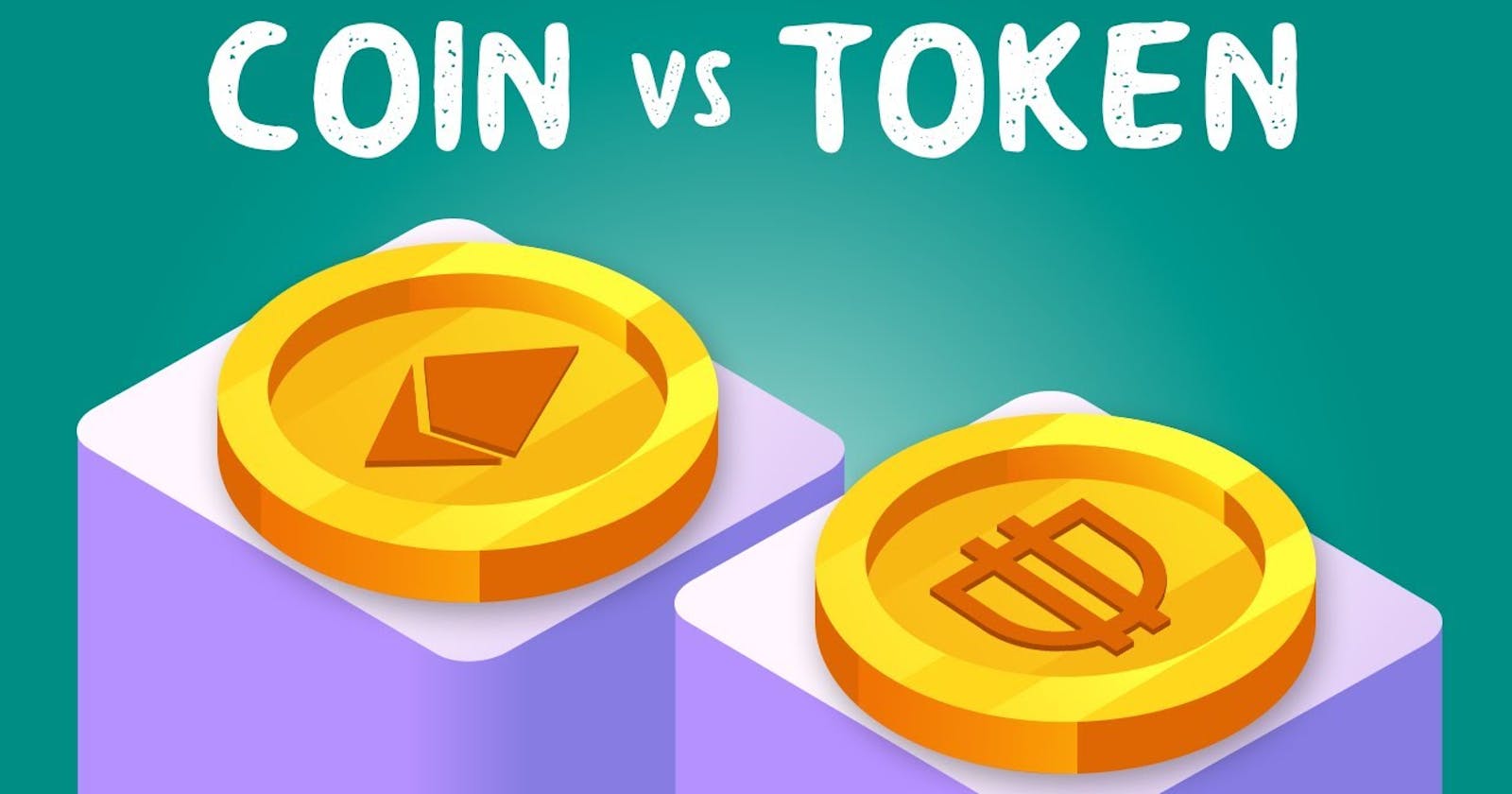We all know the popular cryptocurrencies and just invest in them without even knowing what coins and Tokens are.
When I was new to the Blockchain I was thinking they all are the same and work equally, but after research, I figured out that Tokens are made on top of the Coins Blockchain.
Today I will explain a brief and clear explanation and the difference between the Coin and the Token.
Coins
In the context of blockchain technology, a coin is a unit of value that operates on its own blockchain network and has its own native currency. Coins are used to represent digital assets that can be exchanged and traded on the network.
Examples of coins include Bitcoin, Ethereum, Litecoin, and Ripple. These coins have their own unique features, such as transaction speed, privacy, and security, that distinguish them from other coins. For instance, Bitcoin is known for its decentralized and secure network, while Ethereum is known for its ability to support smart contracts and decentralized applications (DApps).
Coins are created through a process called mining, which involves using computational power to solve complex mathematical problems and validate transactions on the network. Miners are rewarded with newly created coins as an incentive for securing the network.
Coins can be used for a variety of purposes, such as payment for goods and services, investment, and trading. They can be bought and sold on cryptocurrency exchanges, and their value can fluctuate based on market demand and supply.
Overall, coins are a key component of blockchain technology and play a crucial role in facilitating decentralized transactions and building trust in the network.
Token
In the context of blockchain technology, a token is a digital asset that is created on top of an existing blockchain network, such as Ethereum. Unlike coins, tokens do not have their own blockchain network, but instead, operate within the infrastructure of an existing blockchain network.
Tokens are created through smart contracts, which are self-executing contracts that operate on the underlying blockchain network. These smart contracts define the rules and conditions under which the token operates, such as its supply, distribution, and use cases.
Tokens can be used to represent a wide range of assets or utilities, such as commodities, real estate, shares in a company, or access to a particular service or platform. For example, a company can create a token to represent shares in the company, which can be bought and sold by investors. A social media platform can also create a token that can be used to access premium features and services on the platform.
Tokens can have different functionalities and use cases depending on their design and purpose. Some tokens are designed to act as a medium of exchange, similar to traditional currencies, while others are designed to represent ownership or access rights to a particular asset or service. Some tokens can also be used to facilitate transactions within a particular ecosystem or community, such as a decentralized exchange or social network.
Tokens have become an increasingly popular tool for fundraising for startups and other projects through Initial Coin Offerings (ICOs) or Security Token Offerings (STOs). In an ICO, a company can issue its own token and raise funds by selling them to investors. In an STO, tokens are used to represent shares in a company and are subject to securities regulations.
Overall, tokens are a flexible and powerful tool for representing a wide range of assets and utilities on a blockchain network and have become an important component of the blockchain ecosystem.
